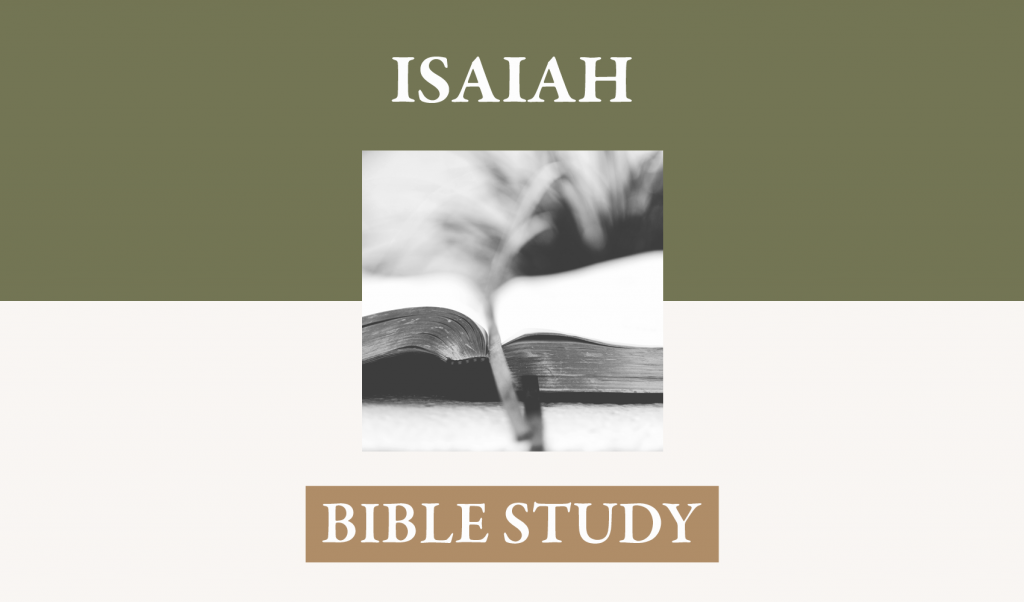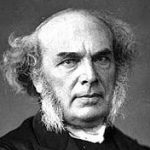Biblical Truth: When God gives a person an opportunity to lead, He also encourages and empowers the person to lead.
What is Lost Matters: Isaiah 1:2-4.
[2] Listen, O heavens, and hear, O earth; for the LORD speaks, "Sons I have reared and brought up, but they have revolted against Me. [3] An ox knows its owner, and a donkey its master’s manger, but Israel does not know, My people do not understand. [4] Alas, sinful nation, people weighed down with iniquity, offspring of evildoers, sons who act corruptly! They have abandoned the LORD, they have despised the Holy One of Israel, they have turned away from Him. [NASU]
[2] Isaiah faced a rebellious and apostate nation. Since men are deprived of their senses, Isaiah calls upon elements of the creation which are without feeling, namely, heaven and earth. When inanimate objects are commanded to witness a condemnation of sensible creatures, the guilt of the latter must truly be great. For the Lord gives the reason for the command: the message is not of human origination, but comes from God. He is speaking through Isaiah as the prophet summons heaven and earth to witness. Sons. Isaiah immediately introduces the concept of the Lord’s fatherhood over His chosen people. The sonship mentioned here is based upon the covenant between the Lord and Israel which was formed at Sinai. The word sons is placed in an emphatic position before the verb because it expresses the grace of God manifested at its highest point. The nation’s rebellion thus appears in a more striking light and in more hateful colors. Reared and brought up. The first act in which God manifested His grace toward the people as a whole was the adoption by which Israel was constituted a nation of sons. The second act was the bringing up of these sons. When God chose Israel she was a small and insignificant people. From small beginnings He reared her and brought her to a position of eminence and exaltation, not merely by enlarging her numbers, but also by the special gifts which He gave to her, the law and the prophets. But they. The words are in the emphatic position in order to stress the contrast between the Lord’s faithfulness and Judah’s unfaithfulness. When thus set in contrast with the free grace of God in adopting the nation and bringing it to maturity, the transgression of the people stands out in bolder relief as the more heinous. Have revolted. The verb signifies rebellion, the breaking of a legal relationship. This inward departure manifested itself in outward acts of rebellion, apostasy and idolatry. Against Me. He who should have been the object of their filial love and devotion was rather the One against whom they rebelled. All sin, whether the sinner realizes it or not, is ultimately against God. The frightening contrast stands out: God has done everything necessary to make Israel a unique nation; Israel, however, has chosen to act like a nation which did not even know God.
[3] In verse 2 the prophet has tacitly made a comparison between Israel and the inanimate creation. In the third verse the people’s attitude is set over against that of dumb animals. Men who were endowed by God with intelligence do not exercise it, whereas the animals, not endowed with such an intelligence as man possesses, nevertheless act more intelligently than man. If the ox and the donkey act more wisely than Israel, Israel must be dull indeed. Israel does not know. Israel does not know who her Creator and Preserver is. God manifested knowledge toward Israel when He set upon her His particular, discriminating, sovereign, electing love. In return Israel did not even have a knowledge comparable to that of the ox or donkey. The implication is that knowledge comes from God alone, and when an individual or nation is without God they have no knowledge but is in darkness and ignorance.
[4] Alas. This exclamatory word probably includes the thought of pain, pity, wonder and deep abhorrence at the unbelievable ingratitude of the nation. The condition of the nation brings a cry of wonder that men who had received so much from God could so easily turn against Him in forgetfulness. Sinful nation. The active participle (sinning) indicates constant and habitual sinning, and so presents a remarkable contrast between what Israel’s destiny was intended to be and what the nation had actually become. People weighed down with iniquity. Iniquity is here regarded as a burden which the people must bear. Under the crushing weight of accumulated iniquities the whole nation is pictured as bowed and weighted down. It is the bondage and guilt of their iniquity that lies upon the people like a pressing burden. From that guilt and bondage they cannot free themselves. They have not the strength; they are slaves. Sons who act corruptly. Sons contains a reminder of the true identity of the people. The sons, that is, those who should have been sons of God, are acting in such a way as to be destructive both to themselves and to others. The idea contained in the word corruptly is that of destruction such as would be caused by an invading army. They have abandoned the Lord. The word abandoned is a comprehensive term for apostasy indicating a complete revolt from God. They have despised the Holy One of Israel. The nation manifested their contempt for God by preferring sin to God as they showed in their overt acts of transgression. The word holy denotes God’s complete separateness from His creation and so His own self-sufficiency as well as His own separateness from all that is sinful. They have turned away from Him. The adverb (turned away) signifies retrogression into a former state. The nation is estranged from God, and the direction in which it is estranged is backwards.
Why I Worship Matters: Isaiah 1:10-15.
[10] Hear the word of the LORD, You rulers of Sodom; Give ear to the instruction of our God, You people of Gomorrah. [11] "What are your multiplied sacrifices to Me?" Says the LORD. "I have had enough of burnt offerings of rams and the fat of fed cattle; and I take no pleasure in the blood of bulls, lambs or goats. [12] When you come to appear before Me, who requires of you this trampling of My courts? [13] Bring your worthless offerings no longer, incense is an abomination to Me. New moon and sabbath, the calling of assemblies – I cannot endure iniquity and the solemn assembly. [14] I hate your new moon festivals and your appointed feasts, they have become a burden to Me; I am weary of bearing them. [15] So when you spread out your hands in prayer, I will hide My eyes from you; yes, even though you multiply prayers, I will not listen. Your hands are covered with blood.” [NASU]
[10] This verse, which introduces the second section of the chapter, begins with a command to hear the Lord speaking. In respect to iniquity, Jerusalem has become a spiritual Sodom, and her inhabitants a people of Gomorrah. If a milder outcome has been granted to Jerusalem than to the cities of the plain, it is not due to any merit found in Jerusalem, for she was a city of hypocrites. But it is due only to the wholly unmerited favor of the sovereign God in whose hands lie the destinies of cities and nations. In His own good pleasure God had chosen not to destroy Jerusalem utterly. Hear, Give ear. The imperatives focus attention upon the message. At the same time, they place a responsibility upon those addressed. There is no option: the people must hear. The word of the Lord. Word is a technical term for the prophetic revelation considered as absolutely authoritative, a rule of faith and practice. It here refers to the content of the following verses. The imperative implies more than the mere physical act of hearing; it implies a hearing that results in obedience to the thing heard. The force of the verb is well illustrated in 1:19: the people must consent and obey the word they heard. One does not truly hear God’s word unless he obeys that word. The instruction of our God. In the present instance the word instruction is clearly parallel to word, and hence denotes the instruction which is to be immediately set forth in the following verses.
[11] In answer to the prophet’s condemnation the people might have pointed to their religious activities. Did they not bring sacrifices as the law had commanded? Did they not stretch out their arms in prayer? How then could Isaiah speak so harshly of them? Isaiah proceeds to take away any such refuge, and clearly condemns mere formalism in religion. What are your multiplied sacrifices to Me? Although these sacrifices had been commanded by God and although the sacrificial system as such had been instituted by Him, they were no delight to Him because the heart of the offerer was far from Him. Having abandoned a true view of the One to whom they were sacrificing, men placed their emphasis upon the sacrifice itself, and thus came to the belief that such an offering was necessary for God. They thus bring the offerings of their hands, but at the same time withhold the integrity of their hearts. I have had enough. The verb expresses weariness, tiredness, disgust.
[12] When you come to appear before Me. The purpose of the people in coming to the Temple was supposedly to worship the Lord their God. It is even possible that in so coming some of the worshipers were sincere. Sincerity, however, is not sufficient; it is no substitute for obedience to God’s commands. Unless one worships God in the manner, and only in the manner, which God Himself has prescribed, he will profane the Lord’s courts. So the question God asks is: Who requires of you this trampling of My courts? When men approach God with a heart devoid of faith, they consider as obedience what God has not commanded and what consequently is vain, useless, and to no point.
[13] Bring your worthless offerings no longer. The words constitute an utter repudiation and condemnation of what the inhabitants of Jerusalem had been practicing. In the very worship of God the nation was continuing its rebellion. By thus combining rebellion and worship, it was seeking to join what God had separated. Worthless offerings designates an offering which, from the outward standpoint fulfilled the prescriptions of the Mosaic ritual, but which, inasmuch as the heart that offered it was estranged from God, was in reality nothing more than a dead work of hypocrisy. New moon and Sabbath, the calling of assemblies. These were solemn assemblies for worship. They belonged to the Lord, and hence any misuse of them was a usurpation of what did not belong to the worshiper. Iniquity and the solemn meeting do not belong together. This brings out the heart of the entire matter: the religious exercise of Judah were mixed with iniquity. The people worshiped God with their lips, but their hearts were far from Him. They divorced doctrines and practice, a procedure always attended with disastrous results. Hence, their worship had become mere idolatry.
[14] Note how God now describes the festivals and feasts with your. These worship celebrations do not belong to God any more since the people have taken them and celebrated them in their own fashion. I hate. Through its worship the nation thought that it was drawing forth the favor of God; instead, it merely succeeded in drawing forth His anger. This was not because God had not commanded the sacrifices and other elements of the worship, but because the worship was conducted without the proper attitude upon the worshiper’s part. Only that worship is acceptable to Him which is in exact conformity to His will, which neither adds to nor detracts from His instructions. Burden. The picture is forceful; the sinful worship of the unbelieving nation has become a burden upon the back of the Lord, which weighs Him down so that He is weary from bearing it.
[15] Not only are sacrifices and offerings rejected, but prayer likewise. When you spread out. The reference is to the worshiper’s attitude in prayer, an attitude which indicates supplication. If, however, the people do not approach God in faith, they are offering their words and desires to idols. I will hide My eyes. It had been made clear to the nation what the Lord required of it as to offerings and approach to God. Despite this fact the nation had chosen to draw near to Him with a heart of unbelief and to rely upon some supposed intrinsic merit in the sacrifices rather than upon the Lord’s promises. God closed His eyes and ears indicating that He had rejected their worship and prepared to bring judgment upon the worshiper. Multiply prayers. In a time of danger and difficulty, when the people prayed fervently and continually to Him, God would not listen. Fervor and zeal in prayer are not substitutes for obedience. Your hands are covered with blood. The hands that stretched out to God in the hope of obtaining His favor had committed violent deeds. The hands, being outstretched in prayer, would go through the motions of worship, but they were hands which had committed deeds of violence. Note that the hands are not merely stained with blood; they are covered as though they had actually been dipped in blood.
How I Live Matters: Isaiah 1:16-20.
[16] "Wash yourselves, make yourselves clean; remove the evil of your deeds from My sight. Cease to do evil, [17] Learn to do good; seek justice, reprove the ruthless, defend the orphan, plead for the widow. [18] Come now, and let us reason together," says the LORD, "Though your sins are as scarlet, they will be as white as snow; though they are red like crimson, they will be like wool. [19] If you consent and obey, you will eat the best of the land; [20] But if you refuse and rebel, you will be devoured by the sword." Truly, the mouth of the LORD has spoken. [NASU]
[16] The divine accusation is now fully established by means of nine admonitions in which the difference between a true and a false righteousness is pointed out. Wash yourselves. If there is to be a true service and worship of God, there must be a genuine repentance. Inasmuch as in himself he did not have the power to do this, when he did repent, it was an evidence that God had worked in his heart. True washing was the work of God. In the last analysis, the only thing that could wash away the blood of violence was the blood of Christ. Make yourselves clean. The two imperatives may be joined: “wash yourselves completely clean.” The act of cleansing is thus the result of washing. The true service of God is based upon genuine repentance. Cease to do evil. Here lies the true nature of repentance; it is both a cessation of the doing of evil together with a wholesouled turning unto God. An entirely new manner of life is demanded. The verse contains four imperatives, uttered with absolute authority: wash, make clean, remove and cease. Why are these commands given if the men of Judah did not have within themselves the power to obey them? The answer is that they serve to bring men to a conviction of their need for washing and cleansing. Like men of today the inhabitants of Judah thought that they had no such need. They brought sacrifices; was that not satisfactory? These commands also serve to convince men of their inability to obey. What man in his own strength has ever been able to wash and to cleanse himself from the stain of sin? They also serve the purpose of causing a man to seek after the true and proper source of cleansing, even the grace of God Himself.
[17] Learn to do good. After the negative exhortation of the preceding verse, Isaiah now gives five positive exhortations, the first of which lays the foundation or groundwork for all the remainder. The first command implies that the people needed to be taught. To do good was something new to them, something that had to be learned. From whom were the people to learn this lesson? Certainly not from themselves, but from God, who is the only true Teacher of doing good. The content of what it means to do good is expressed in the following commands. Seek justice. The people were to seek to devote themselves with zeal to the pursuance of justice. Three specific examples of the manner in which justice is to be pursued are now given. Reprove the ruthless. This imperative means to cause a person to take a right or straight way. When ruthless behavior is not checked, justice cannot flourish; it must, therefore, be confined. The first step in pursuing justice is the restraining of oppression. Defend the orphan. One duty of the covenant was the care of widows and orphans. To do good is to work for the just treatment of orphans. Plead for the widow. The widow and orphan are mentioned together because of their helplessness, and they thus become a symbol of those that are weak and without help. They have no one to plead their cause or to defend them.
[18] Come now. This is a command which cannot be evaded; it must be obeyed. God alone can lay down the conditions which must be followed. It is not a meeting of equals, but of God with His sinful people. Let us reason together. This verb is an invitation to discuss together the accusation which the Lord has made against Israel. In the light of the preceding imperative this amounts to a command to appear in a discussion in which it will be shown that Israel is precisely that sinful nation which God has accused her of being, and also that He is a God willing to forgive. Inasmuch as God is thus willing to reason with the nation, the blame for its destruction falls back on itself. Reason is not here conceived as a certain “third party” to which both God and the nation must submit in order that God’s claim may be seen to be reasonable. To reason together is to submit absolutely to the dictates which God Himself lays down. That which is reasonable is reasonable only because God Himself has declared it to be so. Reason is derived from God; it is not a standard independent of Him to which He like man must submit, and man can be reasonable only when he thinks and acts in accordance with the revealed will of God. Man must think God’s thoughts after Him. In the present context, therefore, to be reasonable is to obey the commands which God has given and to believe the revealed fact that, although one’s sins were heinous, they would nevertheless become white as snow. The first step in a genuine repentance would be to realize that one’s actions have not been in accord with reason (God’s commands). All sin, whether of thought, word, or deed, is unreasonable. Says the Lord. Isaiah inserts these words to emphasize the fact that the message was from God. It is not merely the prophet, but God, who addresses the nation. The offer of pardon and justification was genuine because the Lord had made it. Even if the nation’s sins are the deepest red, they may yet become the purest white: the very opposite of what they now are, in other words, non-existent. The doctrine of a forensic justification is found in these words. God now regards the sins of the people of Judah as blood-red; He will, however, regard them as snow-white. How can such a blessing be wrought? Only through God’s mercy in which forgiveness, pardon, and life are offered to men who are required to repent of their sins. If, however, the people’s sins are regarded as white, as non-existent, by God, this is tantamount to saying that God has justified the people.
[19] Lest anyone should think that this was a straightforward offer of pardon irrespective of whether or not there was repentance on the part of those addressed, the Lord immediately calls the attention of the nation to the need for repentance. If you consent and obey. The Lord still places before the nation the choice between blessing and curse, a choice which had been set before it under Moses. The two verbs, consent and obey, belong together, for the hearing is one that is to be accompanied by obedience. It would be a great mistake to assume that Isaiah was here teaching that Israel possessed within itself the ability to will and to obey. Such an idea is refuted by the entire context. The nation is represented as completely permeated by sin and corruption, and in need of a healing hand applied from without. Inasmuch as there is no soundness in the body, how can one expect soundness to come forth from that body. If there is to be soundness, it must come from without the body, namely, from God.
[20] This verse sets forth the converse of the preceding. It teaches that persistence in a wicked way must bring with it the consuming punishment of the Lord. The opposite of to consent and obey is to refuse and rebel. Disobedience to God’s commands is the equivalent of rebellion. Devoured by the sword. In the two conditional clauses [19,20], both obeying and rebelling are the consequences of an act of the will: either consenting or refusing. And it is the very words that the Lord has spoken that forms the content to which the people are either consenting or refusing.
Questions for Discussion:
1. Why was the Lord not pleased with His people even though they were obeying His laws of worship [11-17]? How is this relevant for Christian worshipers?
2. Why does God not hear the prayers of the people [15]? What prayers does God listen to?
3. List the nine commands that God gives the people in verses 16-18. Why does God give these commands to the people when their rebellion and sin have made it impossible for them to obey?
References:
Isaiah, Edward Young, Eerdmans.
Commentary on Isaiah, Joseph Alexander, Kregel.

















